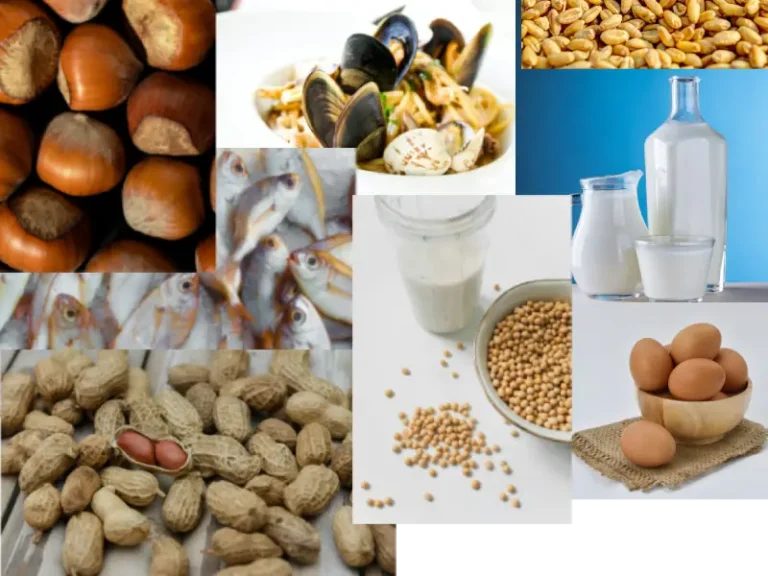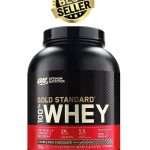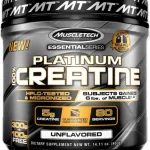Table of Contents:
- Introduction: The Impact of Food Allergies on Athletic Performance
- Understanding the Challenges
- Differentiating Between Allergies and Sensitivities
- Common Food Allergens and Sensitivities Among Athletes
- Top Food Allergens
- Common Food Sensitivities
- Symptoms and Signs of Food Allergies and Sensitivities in Athletes
- Immediate vs Delayed Reactions
- Performance-Related Symptoms
- The Science Behind Allergic Reactions and Sensitivities
- How Allergies Affect the Immune System
- Digestive System and Food Sensitivities
- Diagnosing Food Allergies and Sensitivities in Athletes
- Medical Testing and Diagnosis
- The Role of Food Journals
- Managing Food Allergies and Sensitivities for Peak Performance
- Elimination Diets
- Safe Alternatives for Athletes
- Nutrition Strategies to Improve Gut Health and Immunity
- Probiotics and Prebiotics
- Anti-Inflammatory Foods
- Case Studies: Athletes Overcoming Food Allergies
- Example 1: Gluten Sensitivity
- Example 2: Lactose Intolerance
- Conclusion
- FAQs
Introduction: The Impact of Food Allergies on Athletic Performance
Athletes rely on optimal nutrition to fuel their bodies, but food allergies and sensitivities can create significant challenges. When an athlete unknowingly consumes something their body can’t tolerate, it affects both performance and recovery.
Common Food Allergens and Sensitivities Among Athletes
- Top Food Allergens
Athletes, like the general population, can suffer from allergies to milk, eggs, peanuts, tree nuts, soy, fish, shellfish, and wheat. According to the American Academy of Allergy, Asthma, and Immunology (AAAAI), these are the eight most common allergens that cause about 90% of all allergic reactions.
- Common Food Sensitivities
Unlike allergies, food sensitivities generally result in gastrointestinal issues such as bloating, gas, and cramps. Lactose intolerance and gluten sensitivity are two well-known conditions that can affect athletic performance.
Symptoms and Signs of Food Allergies and Sensitivities in Athletes
- Immediate vs Delayed Reactions
Allergic reactions can be immediate, causing hives, swelling, or difficulty breathing. Sensitivities, however, usually manifest hours or even days after consumption. For athletes, delayed symptoms like bloating or brain fog can sabotage their training.
- Performance-Related Symptoms
Food sensitivities might not be life-threatening, but they can still hamper an athlete’s stamina and recovery. An upset stomach, nausea, or muscle weakness after eating can severely impact training sessions and competition day.

The Science behind Allergic Reactions and Sensitivities
- How Allergies Affect the Immune System
Allergic reactions involve the immune system mistakenly identifying a harmless substance as a threat, releasing histamines that trigger symptoms like inflammation, itching, and respiratory distress.
- Digestive System and Food Sensitivities
In food sensitivities, the digestive system struggles to process certain foods, leading to irritation, discomfort, and inflammation. Non-celiac gluten sensitivity is an example where gluten-containing foods cause bloating, fatigue, and joint pain in athletes.
Diagnosing Food Allergies and Sensitivities in Athletes
- Medical Testing and Diagnosis
Diagnosing food allergies requires a combination of skin prick tests, blood tests, and oral food challenges, which should be conducted by a healthcare professional. The Food Allergy Research & Education (FARE) offers resources for identifying safe foods.
- The Role of Food Journals
Keeping a detailed food journal can help athletes pinpoint the foods that trigger symptoms. By tracking meals and reactions, it becomes easier to identify patterns and avoid problematic foods.

Managing Food Allergies and Sensitivities for Peak Performance
- Elimination Diets
Elimination diets are a proven way to identify trigger foods. Athletes can systematically remove common allergens from their diet and then slowly reintroduce them to determine which food is the culprit.
- Safe Alternatives for Athletes
For athletes who are lactose intolerant, plant-based milk alternatives like almond milk and soy milk are nutrient-dense options. Similarly, gluten-free grains like quinoa and buckwheat offer athletes alternatives without sacrificing energy.
Nutrition Strategies to Improve Gut Health and Immunity
- Probiotics and Prebiotics
The gut microbiome plays a critical role in food sensitivities. Consuming probiotic-rich foods like yogurt or taking a probiotic supplement can improve gut health and reduce symptoms.
- Anti-Inflammatory Foods
Foods like turmeric, ginger, and leafy greens can help to reduce inflammation caused by sensitivities and allergies. These foods support both gut health and athletic performance by lowering systemic inflammation.

Case Studies: Athletes Overcoming Food Allergies
- Example 1: Gluten Sensitivity
A professional triathlete struggling with gluten sensitivity improved his performance by switching to a gluten-free diet. This change reduced bloating and fatigue, allowing him to focus better during training.
- Example 2: Lactose Intolerance
A female marathon runner with lactose intolerance eliminated dairy from her diet and supplemented with calcium-rich foods like kale and fortified non-dairy milk. Her digestive issues disappeared, and she noticed an improvement in recovery times.
9. Conclusion:
Food allergies and sensitivities can pose significant challenges to athletes, but with the right strategies, they can still perform at their best. By identifying triggers, adopting alternative food choices, and improving gut health, athletes can overcome these hurdles and enhance their overall well-being.
10. Frequently Asked Questions (FAQs):
Q1: How can I tell if I have a food allergy or sensitivity?
A: Symptoms of allergies are immediate and severe, while sensitivities usually involve digestive discomfort and delayed reactions. Consult with a doctor for proper diagnosis.
Q2: Can food sensitivities affect athletic performance?
A: Yes, food sensitivities can lead to bloating, fatigue, and poor recovery, all of which can hinder athletic performance.
Latest Articles
Popular Reviews
July 3, 2023
AmRelieve Knee support
January 15, 2025
The Role of Whey Protein for Fitness
May 31, 2023
Elastic rubber band exercise
June 6, 2023
Essential Platinum Creatine
August 6, 2023
How can we help you?
We are your one-stop-shop for all things sports, nutrition and stress management. Our team of experts provides you with the latest reviews on sports equipment, nutrition facts and stress management advice. We also provide ratings to help you make informed decisions on what to buy. Stay ahead of the game with our blog website! Join our community today and get access to exclusive content and deals.
Most used tags
#Adaptogens #ModernNutrition #HolisticHealth #StressRelief #HealthyLiving #BrainHealth #CognitiveFunction #EnduranceTraining • #ExerciseForMentalHealth #ExercisePsychology #FitnessChallenge #FunctionalFitness • #HyroxRace • #MentalFitness #MentalHealth #ExerciseBenefits #MindBodyConnection #StressRelief #FocusThroughFitness #EmotionalWellBeing #HealthyLiving #FitnessMotivation #MentalHealthAndExercise #MentalWellness #Mood-boosting winter workouts #PhysicalActivity #WellnessJourney #Winter workout motivation ACLInjury ACLSurgery Blood pressure Cardiovascular exercise ChiaPudding Exercise fitness Gains healing healthy HealthyEating HealthyRecipes HyroxFitness • injury Mental Health in Motion muscle gain NutrientPackedMeals Prevention Resistance training Sport SportsInjuryTreatment Stretching and Cooling Down Supplements therapy Top Wearable Fitness Technology Trends Shaping 2024 training weight loss wellbeing Workout Routine










